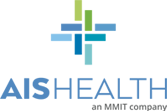Radar on Medicare Advantage
-
How Does MA Plan Design Impact Enrollment, Equity?
Medicare Advantage plan design — particularly the cost of premiums — has a major influence on who chooses to enroll. The variance in that enrollment mix can have a big impact on outcomes and utilization, according to a new white paper from Inovalon and Harvard Medical School. Using Inovalon’s Medical Outcomes Research for Effectiveness and Economics Registry dataset, which tracks demographic and outcomes information for about 30% of the MA population at any given time, researchers found that socioeconomically disadvantaged populations were more attracted to MA, especially zero-premium products.
“Our research challenges the misconception that Medicare Advantage is a monolith, revealing significant differences in plan designs and features and how those variables affect enrollment and outcomes,” Boris Vabson, Ph.D., a health economist at Harvard Medical School and co-lead researcher on the project, said in an April 8 statement released alongside the research.

-
ACHP: Final Rule Checks ‘Untethered’ Agent, Broker Fees Impacting Competition
After pushing for new limits on broker compensation and other changes to ensure seniors are guided to Medicare Advantage and Part D plans that best meet their needs, the Alliance of Community Health Plans (ACHP) on April 4 celebrated a victory with the release of CMS’s final rule making policy and technical changes for the 2025 plan year. ACHP, which represents provider-aligned, not-for-profit health plans, had spelled out its hopes for these policies in its broader “MA for Tomorrow” framework and provided Senate testimony on the impact of excessive “add-on” broker fees paid by larger plans. After CMS issued its final rule containing new marketing-related policies, AIS Health, a division of MMIT, spoke with ACHP’s executive vice president of public policy, Dan Jones, to learn more about the group’s position.
-
News Briefs: UnitedHealth Reaffirms Full-Year Earnings Guidance Despite Cyberattack Impact
Although the cyberattack on its Change Healthcare subsidiary cost the company about $870 million, or 74 cents per share, in the first quarter of 2024, UnitedHealth Group on April 16 reaffirmed its full-year adjusted earnings per share (EPS) guidance of $27.50 to $28.00. Reporting financial results for the quarter ending March 31, the company said its Medicare Advantage business saw heightened outpatient care utilization that was consistent with what it experienced in the first half of 2023 and planned for in 2024. Winter seasonal activity that included vaccinations, higher incidents of respiratory illness and related physician office visits have subsided, management said. “If other MCOs had the same experience, it would be most positive” for Humana, “given its guidance for persistent, elevated utilization and investors’ likely preference for a 50%+ EPS recovery story (HUM) over slightly better revenue/EPS growth,” wrote Jefferies analysts on April 17. Revenue for the UnitedHealthcare segment grew 7% from the prior-year quarter to $75.4 billion, reflecting enrollment growth in its commercial and senior segments that was offset by expected declines in Medicaid due to ongoing eligibility redeterminations. UnitedHealthcare highlighted major managed Medicaid wins in Michigan, Texas and Virginia but expressed disappointment in the recent Florida selections.
-
No News Is Bad News for MAOs Hoping to See Pay Hike in 2025
The April 1 release of final rate projections for Medicare Advantage and Part D plans was largely uneventful as CMS maintained the same all-in estimate of what plans can expect to see, on average, in terms of a reimbursement update next year. But the market did not respond well: MA-exposed insurers’ shares took a tumble and equity analysts warned that a revenue decline — before coding trend — could lead to benefit cuts and footprint reductions.
Industry trade groups did not respond favorably, either. In a statement released immediately after the rate announcement, AHIP President and CEO Mike Tuffin said the finalized policies would “put even more pressure on the benefits and premiums of 33 million Medicare Advantage beneficiaries who will be renewing their coverage this fall,” particularly as the MA and Part D programs face regulatory and legislative changes.

-
As ‘Focused Audits’ Get Underway, Plans May Struggle to Meet UM Conditions
Thanks to a final rule published just one year ago, Medicare Advantage plans as of Jan. 1 were expected to meet new constraints when it comes to applying their utilization management (UM) policies, including prior authorization. CMS has said it aims to assess UM-related performance of plans serving 88% of beneficiaries this year, and it intends to accomplish this through both routine program audits and “focused audits.” According to compliance experts, the volume of audit activity since CMS began sending engagement letters in late February suggests the agency is eager to meet its goal, but it may not like what it finds.


The Latest
Meet Our Reporters
Meet Our Reporters


















